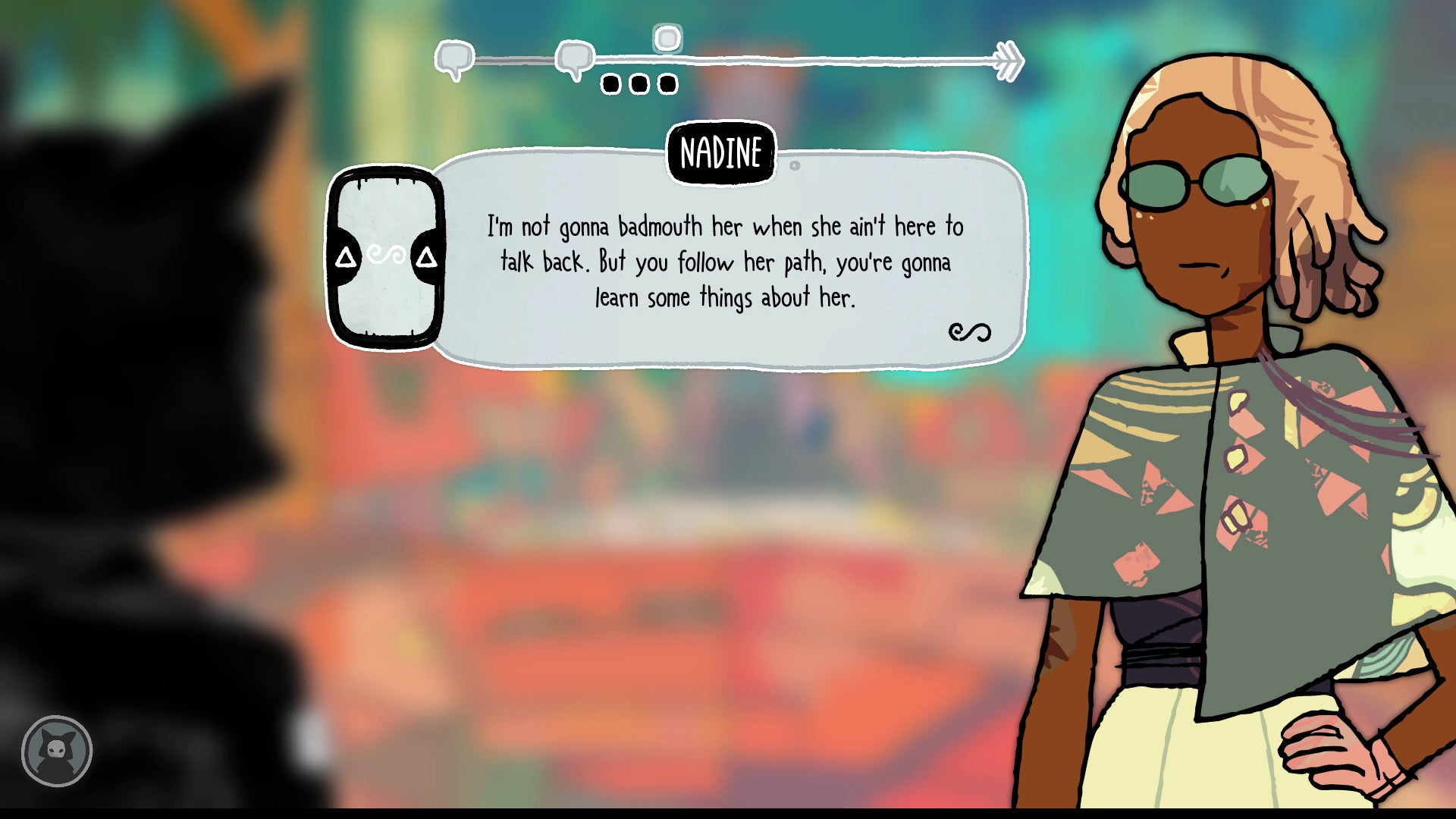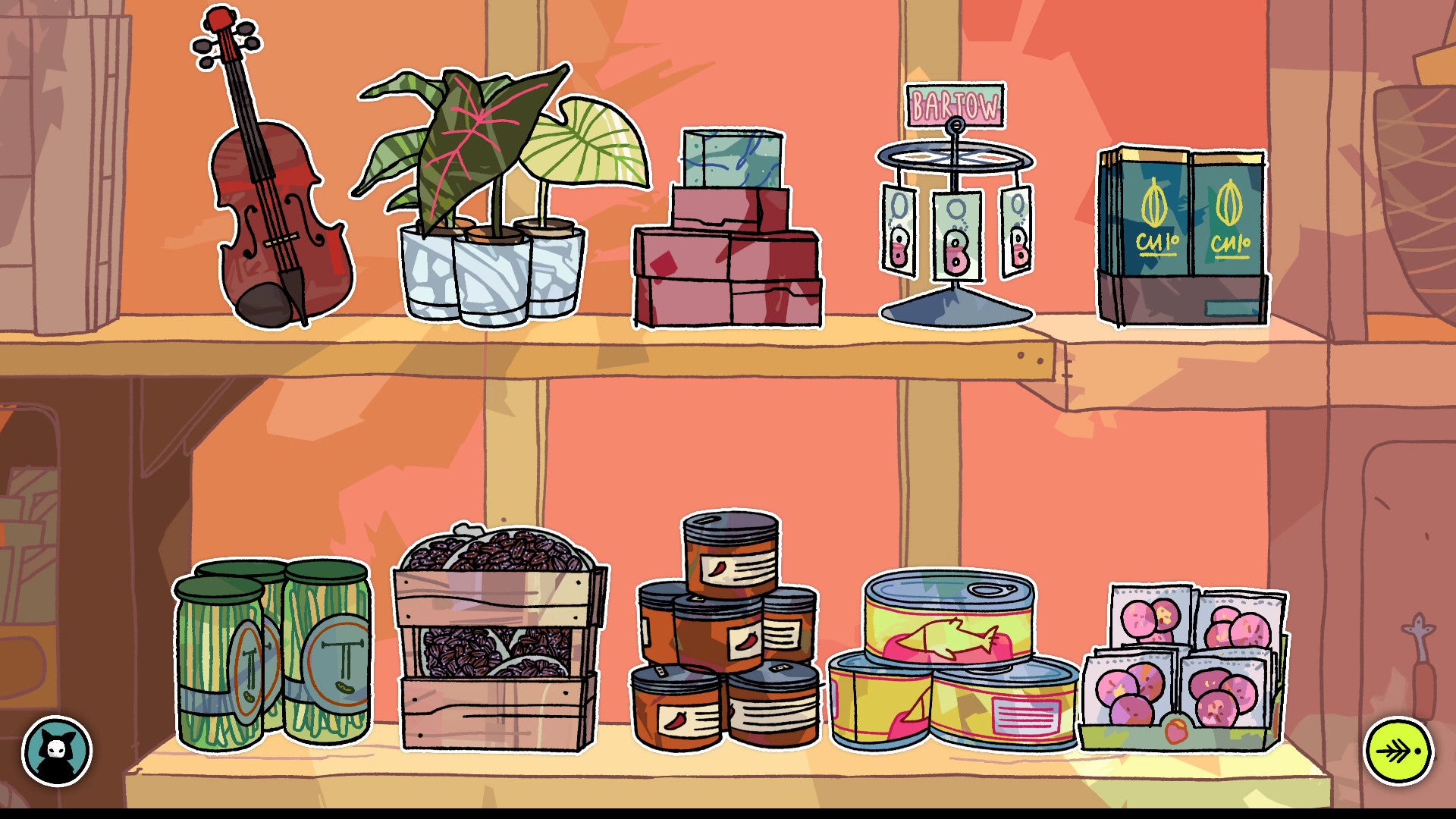That’s not to say they don’t do that at all - there are some great games about having conversations. I will always recommend Bithell Games’ Subsurface Circular, available on PC and Switch, to anyone even remotely interested in conversational mechanics, and the recent We should talk. by Insatiable Cycle, available on PC, uses an interesting modular conversation system. But right now, my favourite game about having conversations is Signs of the Sojourner. In this deckbuilder, which released on PC last year (and which you may already own if you bought the Itch Bundle for Racial Equality) and which came out on Switch a few week back, you’re playing a cat-eared person travelling with a caravan, going from city to city to learn more about the world out there and to collect different things to sell at your local shop in a bid to keep your town’s economy alive. The heart of Sojourner is trying to navigate conversations with different people, an act represented by a card game. You and your conversation partner put down cards after one another in a straight line. Cards feature symbols on the right- and left-hand-side, and you always want to match the symbol facing you. The game itself isn’t difficult to learn, but what I like the most about it is how each play you can make corresponds to a way of talking. You can start to chatter, which means putting down several cards in a row before the person opposite you can interject, you can clarify your meaning by placing a new card in an earlier part of your conversation, and you can reach a state of being in accord by matching the same symbol together several times. After every conversation, you replace a card in your deck with one from the other person’s deck. The most important lesson in Signs of the Sojourner, one the game teaches you early on, can make it frustrating to play - it lets you know, in no uncertain terms, to expect failure. There are conversations that will lead nowhere, because the person you’re talking to has a radically different way of speaking from your own, represented by the cards they use. You can’t get them all, no matter how hard you try, and some conversations are doomed from the beginning depending on how your deck looks. Some people you won’t even meet in your first playthrough, and different places on the map are only available to visit after someone describes the way there, so playing the game at least twice is encouraged (one playthrough took me little over two hours, if you love it as much as I did, you will want to do this anyway) As a player, of course there is value in successfully navigating conversations - there are resources to be gained at the end, after all. At the same time, however, I find it fascinating that this goal isn’t inherent in the conversations you have with people in this game. At no point, you go to the nut trader and say “Hey, I really need you to give me some of your walnuts.” Instead you will listen to them go on about their successful business, and if you empathise with them by way of completing the card game, they will be happy to share some walnuts with you. It’s the epitome of someone telling you they’ve had a good time with you and would like to help you as a result of that - one act of kindness answering another. Signs of the Sojourner comes up against its technical limitations sometimes, but the card game is such an elegant way of describing a multitude of aspects about conversation, for example how people have a different way of expressing themselves depending on where they’re from, and how what happens to us affects the way we speak. It’s beautifully written, and I can’t get enough of how it found a mechanical way to express an emotional concept - that having conversations is a give and take, and that disagreements don’t have to be the end.

